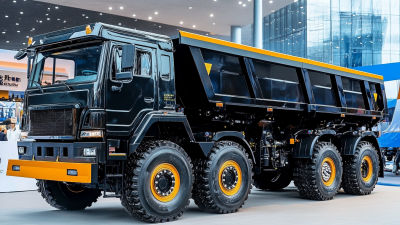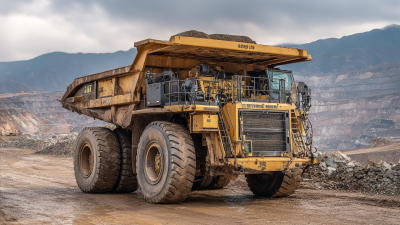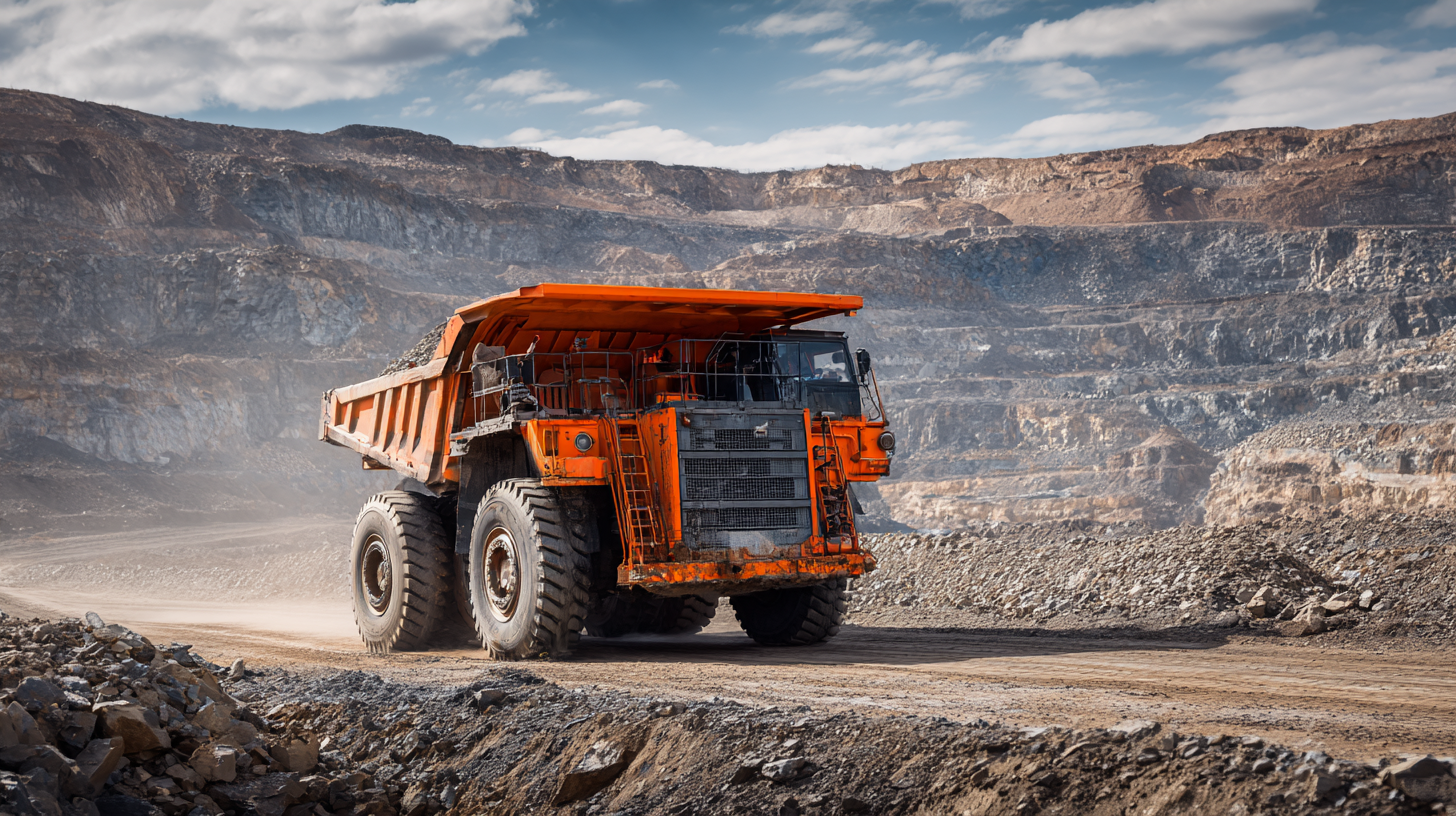 The mining industry is undergoing a remarkable transformation, driven by the imperative for enhanced efficiency and sustainability.
Electric Haul Trucks are at the forefront of this shift, offering a solution that not only reduces fuel consumption but also significantly lowers emissions.
According to a report by McKinsey, transitioning to electric vehicles in the mining sector could potentially decrease operational costs by up to 30% due to lower energy and maintenance expenses.
Furthermore, the International Council on Mining and Metals (ICMM) estimates that adopting electric haul trucks could reduce greenhouse gas emissions by as much as 50% compared to traditional diesel counterparts.
This innovative approach is not just about meeting regulatory demands but also about aligning with the global shift towards cleaner energy.
As mining companies embrace these advanced technologies, understanding the efficiency and operational benefits of Electric Haul Trucks becomes imperative for future competitiveness in an evolving market.
The mining industry is undergoing a remarkable transformation, driven by the imperative for enhanced efficiency and sustainability.
Electric Haul Trucks are at the forefront of this shift, offering a solution that not only reduces fuel consumption but also significantly lowers emissions.
According to a report by McKinsey, transitioning to electric vehicles in the mining sector could potentially decrease operational costs by up to 30% due to lower energy and maintenance expenses.
Furthermore, the International Council on Mining and Metals (ICMM) estimates that adopting electric haul trucks could reduce greenhouse gas emissions by as much as 50% compared to traditional diesel counterparts.
This innovative approach is not just about meeting regulatory demands but also about aligning with the global shift towards cleaner energy.
As mining companies embrace these advanced technologies, understanding the efficiency and operational benefits of Electric Haul Trucks becomes imperative for future competitiveness in an evolving market.
The shift toward electric haul trucks represents a significant advancement in mining operations, especially regarding cost reduction. According to recent reports by the International Council on Mining and Metals, electric haul trucks can decrease operational costs by up to 30% compared to their diesel counterparts. This reduction primarily stems from lower fuel costs and decreased maintenance expenses due to fewer moving parts and the absence of an internal combustion engine. Additionally, the ability to harness renewable energy sources further enhances the economic viability of electric haul trucks, making them a smart investment for mining companies aiming for sustainable practices.
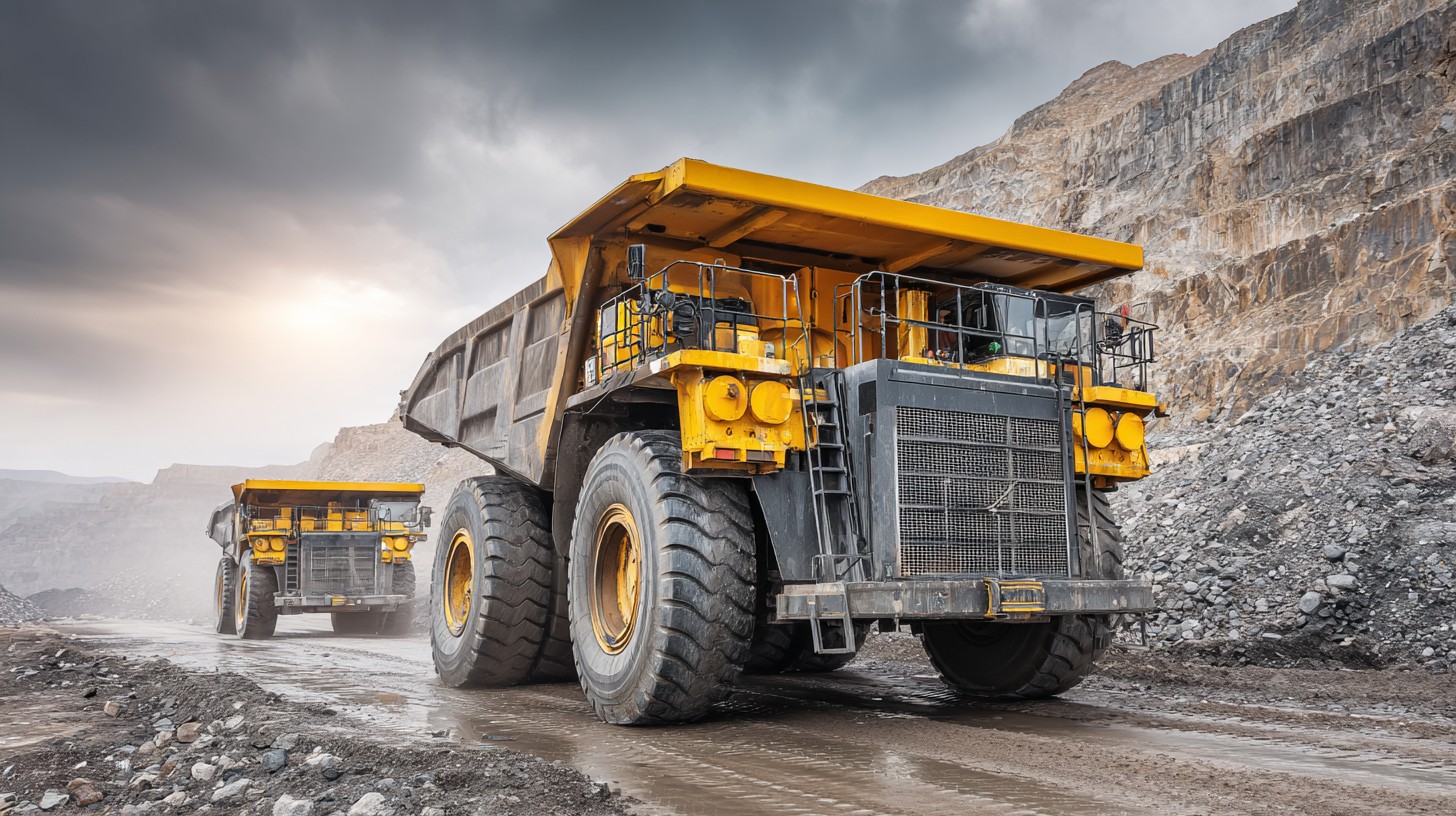 Tip: When considering the integration of electric haul trucks, assess your local energy costs and availability of renewable energy sources to maximize potential savings.
Tip: When considering the integration of electric haul trucks, assess your local energy costs and availability of renewable energy sources to maximize potential savings.
Moreover, the introduction of electric haul trucks can lead to significant savings in labor costs. With fewer emissions and reduced noise levels, these trucks can operate more efficiently in confined spaces and during off-peak hours. A study from the Global Mining Guidelines Group indicated that operations using electric haul trucks reported a 20% increase in productivity due to enhanced operational flexibility and reduced downtime.
Tip: To ensure a smooth transition to electric haul trucks, engage in training programs for your operators focusing on the unique operational characteristics and benefits of electric equipment.
Electric haul trucks are revolutionizing the mining industry, leveraging innovative technologies to enhance operational efficiency and sustainability. One of the most significant advancements is the integration of advanced battery systems, which allow for longer operating times and quicker recharge cycles. These batteries not only provide a greater range but also minimize downtime, enabling mining companies to maximize productivity while reducing reliance on fossil fuels.
Additionally, electric haul trucks are equipped with cutting-edge automation and connectivity features. These technologies facilitate real-time data collection and analysis, allowing for optimized fleet management and predictive maintenance. By harnessing the power of artificial intelligence and machine learning, operators can seamlessly monitor performance and make data-driven decisions that lead to improved efficiency and reduced operational costs. The combination of these innovative technologies underscores the commitment of the mining sector to pursue cleaner and more efficient practices, ensuring a sustainable future for mining operations.
The transition to electric haul trucks in mining operations presents significant environmental benefits, addressing pressing concerns about carbon emissions and air quality. Electric haul trucks produce zero tailpipe emissions, which markedly reduces greenhouse gas emissions compared to their diesel counterparts. This shift not only contributes to global sustainability efforts but also leads to healthier working conditions for miners, minimizing exposure to harmful exhaust fumes.
Additionally, the shift to electric vehicles can lower noise pollution, allowing for quieter operation in mining areas, which is particularly beneficial for surrounding ecosystems and communities. As electric haul trucks utilize renewable energy sources, the overall carbon footprint of mining activities can be significantly reduced. Moreover, companies adopting these innovative technologies often find enhanced efficiency and lower operational costs over time, fostering a more sustainable business model.
**Tips:** To maximize the environmental benefits of electric haul trucks, companies should explore partnerships with renewable energy providers to ensure their energy sources are sustainable. Regular maintenance and upgrades can enhance the efficiency of electric haul trucks, further minimizing their ecological impact. Additionally, investing in employee training on new electric technologies can promote safety and operational excellence in these modern mining environments.
This chart illustrates the environmental impact and cost efficiency of Electric Haul Trucks compared to traditional Diesel Haul Trucks in modern mining operations. Electric trucks show a significant reduction in CO2 emissions and lower fuel costs per hour.
The shift from diesel to electric haul trucks in mining operations marks a significant advancement in both efficiency and sustainability. Diesel trucks, traditionally favored for their power and range, face challenges related to fuel costs and emissions, which have become increasingly burdensome in today’s environmental landscape. In contrast, electric haul trucks are designed to deliver high torque and lower operating costs, without the environmental footprint associated with fossil fuels. Their ability to recharge during non-operational hours maximizes efficiency, allowing for extended operational periods without the need for frequent refueling.
A comparative analysis reveals notable differences in performance and maintenance. Electric haul trucks typically require less maintenance due to fewer moving parts, leading to reduced downtime and lower lifecycle costs. Moreover, their enhanced energy efficiency allows for quieter operations, which can benefit both operational effectiveness and community relations in surrounding areas. Overall, as mining operations seek to minimize their environmental impact and maximize productivity, the transition to electric haul trucks emerges as a compelling strategy for the future of the industry.
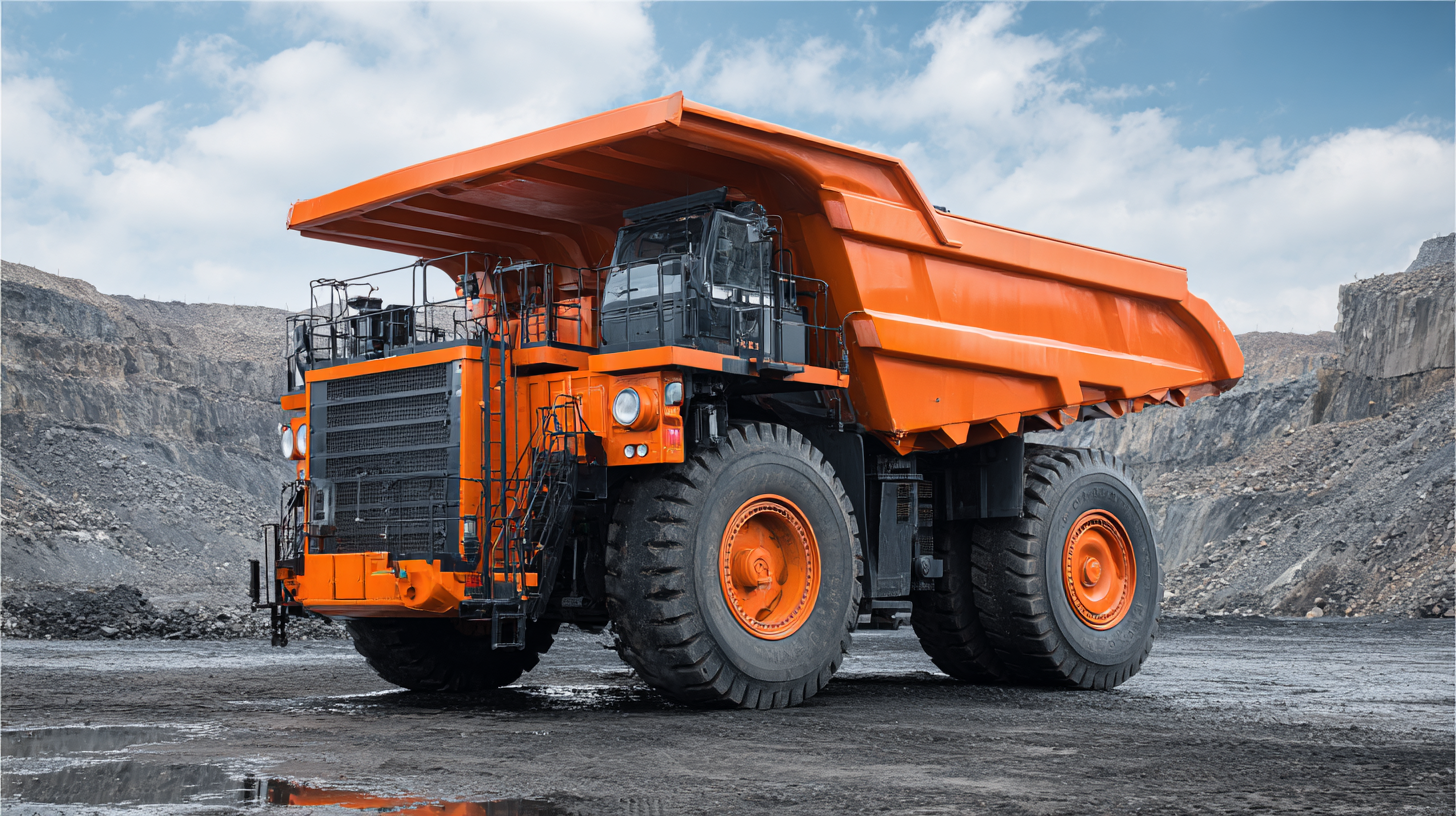
The electric haul truck market is poised for significant advancements as the global heavy-duty truck market is set to rise from $300 billion in 2024 to $460 billion by 2033, at a compound annual growth rate of 4.9%. This growth trajectory reflects the increasing demand for sustainable solutions in the mining sector, where leading companies are vying for a slice of the green mining market. In recent developments, a groundbreaking fleet of over one hundred autonomous electric haul trucks has commenced operations, achieving swappable battery times under six minutes and full charging capabilities within an hour.
Tips: Investing in electric haul truck technology not only supports environmental sustainability but also enhances operational efficiency in mining. Related industries should keep an eye on the advancements in battery technology, as it plays a crucial role in determining the performance and reliability of these electric trucks. As the industry shifts towards electrification, ensuring the infrastructure is in place for rapid battery swapping and charging will be vital for maximizing productivity on site.
The focus on electric haul trucks reflects a broader trend towards innovative logistics in mining. Future developments will likely include enhanced connectivity features and automation technologies to further increase productivity and safety in operations. Companies that prioritize these innovations will not only reduce their carbon footprint but also benefit from improved operational efficiencies and cost savings in the long run.
